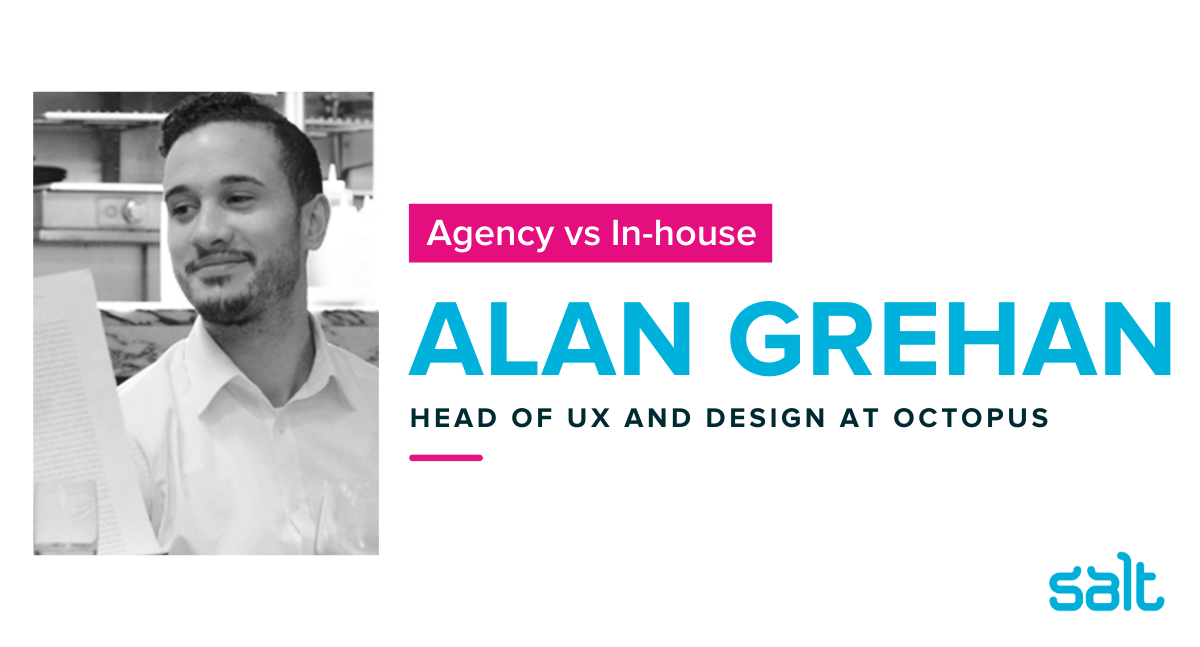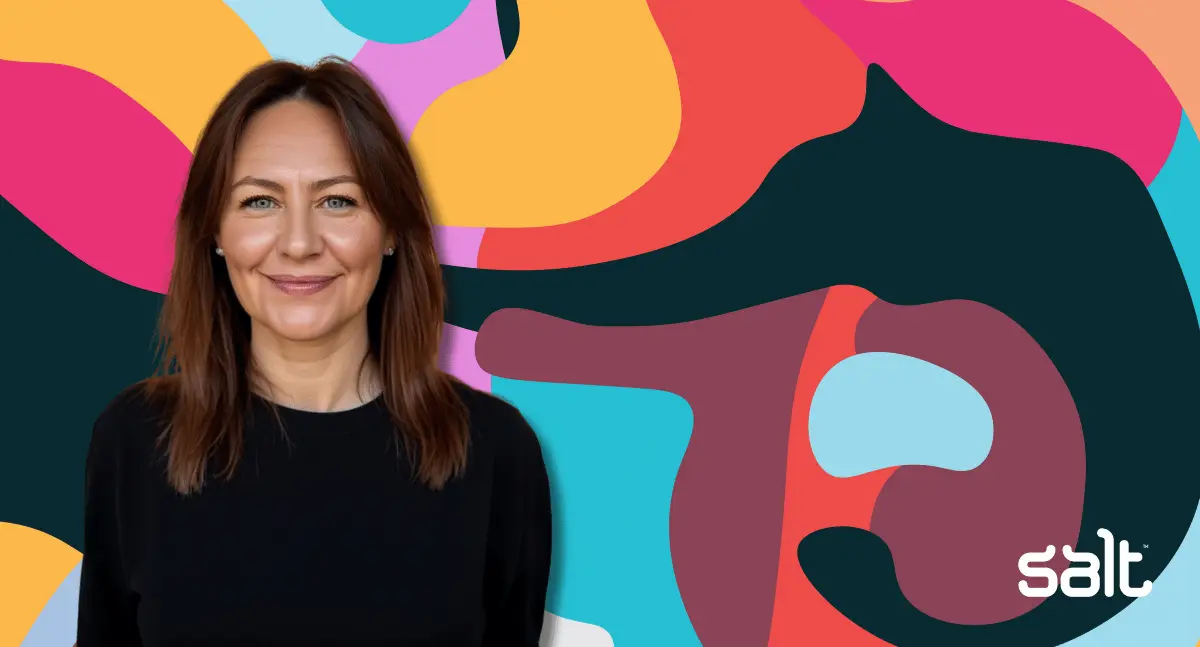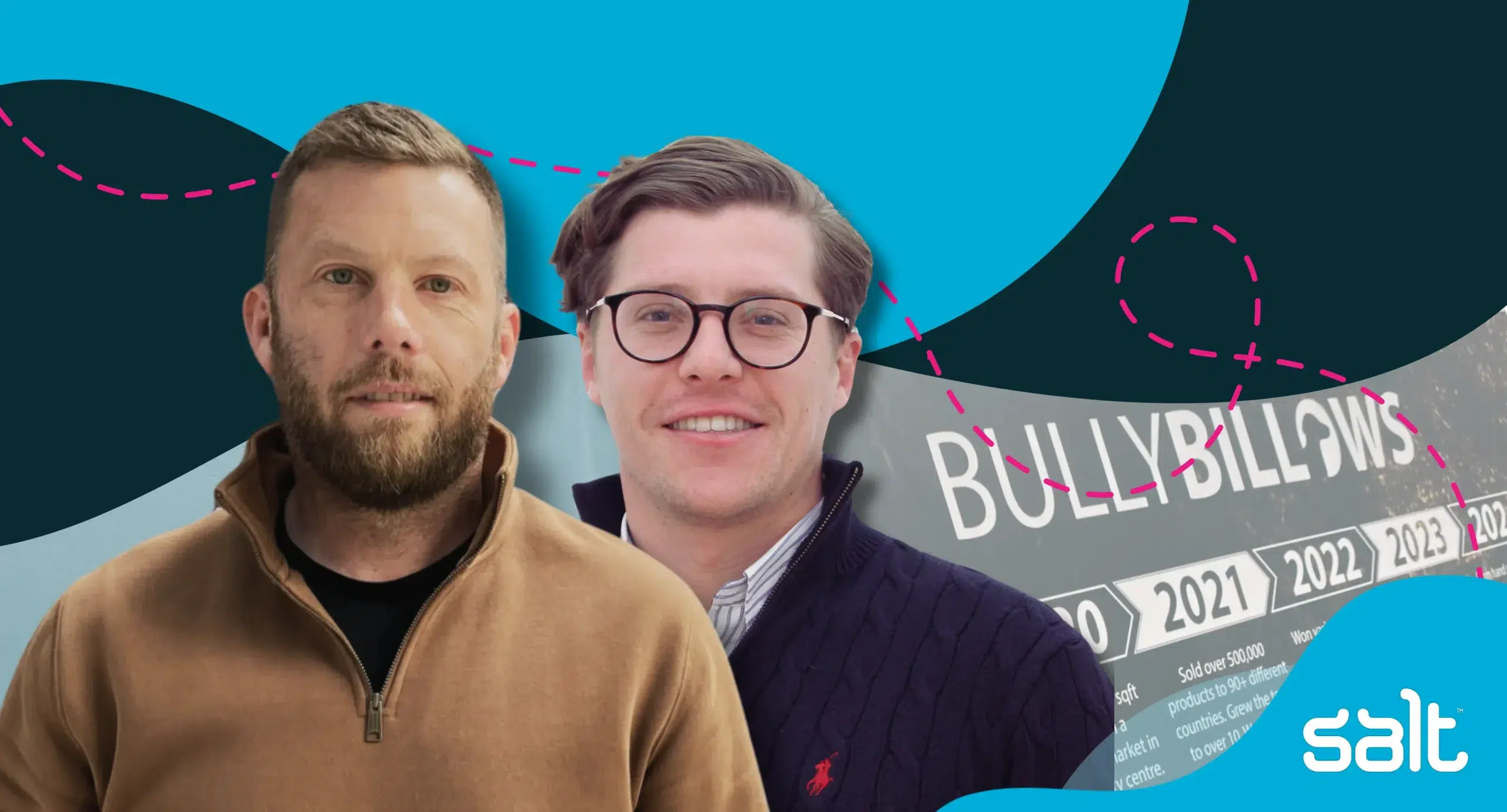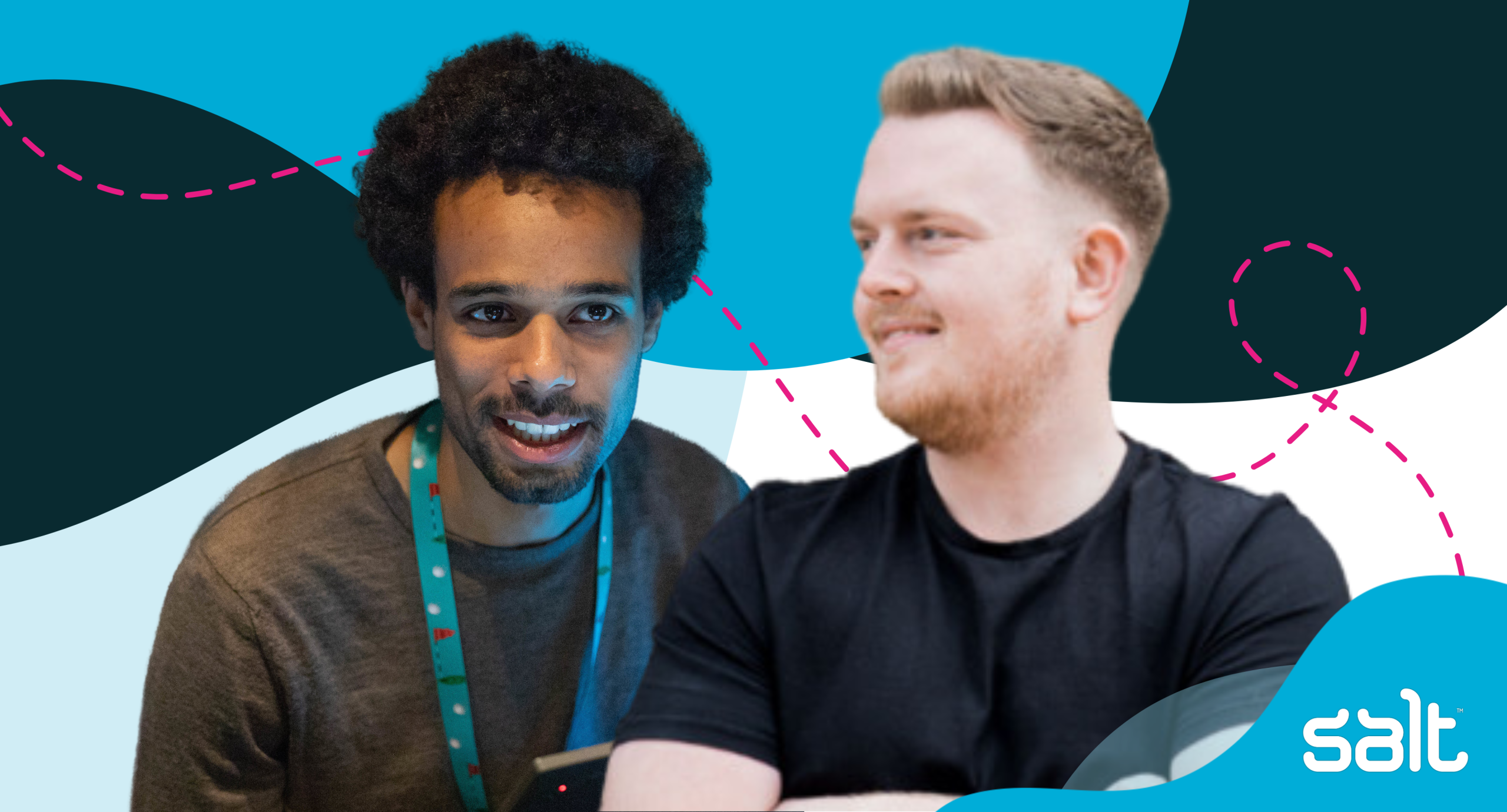
An interview with Alan Grehan, Head of UX and Design at Octopus, about working in agency vs in-house in the Creative industry.
In this ‘agency vs in-house’ interview series led by Salt Senior Consultant for Creative, Holley Potts, we speak to customers from all different sectors within the world of digital to answer the age-old question – agency or in-house? This series is designed to give you a snapshot of creative career journeys and insights into what is currently happening in their businesses. Over to Holley…
As we continue our series that has attracted so many different clients and companies to share their journeys this year, let us continue and welcome the wonderful Alan Grehan, Head of UX and Design at Octopus, who shares his views between in-house and agency…
Holley – So for the people that don’t know Octopus, do enlighten us Alan with a little bit about what you guys do?
Alan – Of course, so Octopus are composed of a group of companies. Octopus Energy is probably the most popular one as they are B2C, then you have our Retail side, Renewable Energy, Adventure (which does a lot of supporting for SMS), and entrepreneurial business, then you have Octopus Renewables who are accelerating the transition towards a future powered by clean energy, Octopus Ventures (which does a lot of supporting for SMS) and entrepreneurial business, then you have Octopus Investments which is the original part of the business.
Going back to the transfer between agency and in-house, I started my career in agency and made the jump into in-house. To be honest, it wasn’t a conscious decision it just made sense as the next step. It wasn’t until I went from a small agency to BT that I really noticed there was a big shift in the way they work. I noticed a lot of the work that was done by agencies could be inconsistent as you could tell so many different people had been working on it.
I have found a lot of designers have had this same shift of moving from agency to client side where a few things like work life balance, more autonomy to do their work, own their product and proposition come into play. There is also a sense that you have more design value in-house. You are really listened to for your expertise, of course your level plays a part too. You tend to not get quite as a fast-paced working in-house, compared to that of agency. I like that as I prefer to really focus on projects and find ways to deliver quality, problem solving, and identifying user needs to shaping experiences from that, without rushing.
Holley – I can you see that you traditionally came from a visual UI background and have now transitioned into a UX designer, so what are your views on hybrids these days?
Alan – Good question! So everywhere I have worked over the years, I have always worked with specialists where the UX and the UI designers tended to buddy up. Since moving to Octopus, we hire Product Designers. There is always that hesitation with a hybrid whether they can be good at UI design too and if they really understand UI, not just colouring wireframes but creating all the components so that the dev’s can build them in the best possible way. So, to have all of that knowledge plus the UX can be tricky. Seeing this at Octopus, all of these Product Designers had been trained in doing both UX and UI at the beginning so there wasn’t a transition. After seeing this, I can say this definitely works. Of course, some people leer towards some sides more than others, but as long as you have enough people that have the right puzzle pieces that fit together then it works collectively.
So, yes hybrids can work but I think it depends on the individual, the training available, and also the culture of the business. So, in terms of how we work, it’s Product Designers moving forwards. It’s all about understanding the basics, such as SEO, not necessarily having to literally do the production of it, just the understanding. Really as a designer you should be able to do that.
We collaborate massively a lot within our teams too, it’s something that I have tried to grow since coming here. We work regularly with the content, product, marketing teams and the internal engineers who work on our products, so we are cross liaising all the time. We have different behaviours of ways of working so we are set up for success.
Holley – Have you found that creativity has been impacted since doing everything digitally this year?
Alan – A little yes, I feel people are really good at finding their individual process of creating solutions to things. We show a lot of our work to each other over Zoom, obviously that doesn’t compare to being in person, but using platforms like Miro massively helps, especially for a lot of early framing sessions where we try to get closer to the problem. I think we have found enough ways to keep our creativity going.
Culture has been affected a little though, so we took a step back from Zoom meetings and chatted more on Teams which has allowed people to have more time to think about their problems creatively in their own space, comfortably in their own homes. Maybe they don’t work 9-6pm, maybe these ideas come to them at 7pm, as long as they come to the answers eventually, we shouldn’t be put in a time box. So that has been quite helpful to keep people sane.
Holley – With so much innovation happening around things such as video platforms to sharing information, what areas do you see rising?
Alan – I feel there will be a massive UX and design industry boom soon, as people are hesitant right now. Every business that was working with paper and face to face will realise they need to be digital, so all of those companies will need to find ways to be digital first or put plans in place so that they are in the next 3-5 years.
In terms of innovation, I think that will happen in areas that are less obvious. For instance, because we all work from home, there will be new problems that will arise to alleviate these new experiences. All of our behaviours have changed so much that there will be so much opportunity, it’s who can identity the new need that will be the next start-up we need to watch out for.
The trends I have started to see with a few businesses, is that they have started to move away from UX Researchers. This is a shame as they aren’t seen as vital to the company, yet it’s the companies that really invest into human research to understand what the future will look like and how human behaviours have changed, who will do very well.
Holley – Obviously no one could have prepared us for the amount of remote working that everyone would have to do, how have you and your team found this new way of working?
Alan – We already had a few days a week working from home before lockdown so we were already fairly set up, of course no one expected it would be to this extent. The thing that’s difficult is on an individual basis, especially if you live by yourself and are used to working in a collaborative environment, you can’t see or collaborate with everyone you work with, which can be really hard hence why I said we need to tone down the Zooms to help unwind. Also, no-one’s home has been set up for this either, yet we have actually done some of our best work during lockdown by winning an award for our COVID Comms!
Holley – That’s wonderful to hear! Winning awards in Lockdown, touché! So, with this remote working, how have you managed to retain culture during this massively digital year that we are all living in?
Alan – Well, being flexible in how we communicate has helped. I believe culture is something that can happen in a few different ways. You have the fun side of culture like team drinks and away days but sometimes that can feel like forced fun which people are not always into. Then there is also the day to day work culture, where if you set up an environment to enable people to do their best work and enjoy what they are doing then naturally you will have a good culture as they feel empowered to do good work – designers want to do great work! This helps the culture grow in a few different ways whether that be encouraging behaviours or positive thinking or processes that set people up for success. When everyone feels like they are working toward the same goal that helps culture, which is what we are definitely working towards.
A wonderfully concise journey touching on all different angles from Alan, I thought what was quite thought provoking was lessening the use of Zooms to allow more time to think creatively, a powerful point and one to remember!
Stay tuned for more interviews, coming your way. If you would like to find out more about the series or find out how we can help you with your hiring, get in touch with Holley via hpotts@welovesalt.com.
Read more of our agency vs in-house interviews here.
For more information or advice on hiring digital talent, get in touch with the team today at contact@welovesalt.com..


